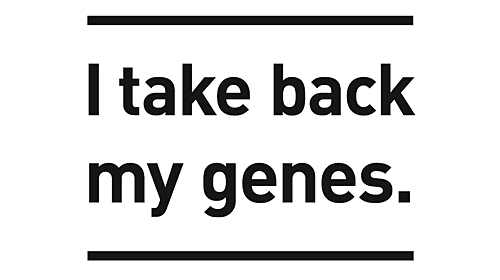
Today, the Supreme Court granted our petition seeking review of an appellate court’s 2-1 ruling upholding patents on two human genes associated with hereditary breast and ovarian cancer. We represent 20 plaintiffs, including geneticists, patients, and scientific organizations representing over 150,000 pathologists and laboratory professionals. The case is the first challenging whether human genes can be patented.
BRCA1 and BRCA2 are two of the 23,000 genes in the human genome, 20 percent of which have been patented. We all have these genes, but women with certain genetic mutations are estimated to have up to an 85 percent lifetime risk for breast cancer and 50 percent risk for ovarian cancer. Myriad Genetics obtained patents on the “isolated” forms of the two genes, which simply means it patented the human gene once removed from the cell. This includes the BRCA genes from every person in the United States. Myriad has enforced its patents on the genes so that it has a monopoly on BRCA genetic testing.
What would be the impact of a Supreme Court ruling against human gene patents?
- Gene patentholders could not threaten or shut down other laboratories from offering genetic testing. E.g., Myriad sued the University of Pennsylvania laboratory run by plaintiffs Arupa Ganguly and Haig Kazazian, forcing them to stop testing the BRCA genes, even though their test was different from Myriad’s and cost less.
- Gene patentholders could not prevent others from providing genetic testing that draws on new developments in genetic research. E.g., Myriad denied plaintiff Ellen Matloff’s request to allow Yale to screen patients for BRCA genetic mutations that were excluded from Myriad’s standard test, but shown by the scientific community to be associated with cancer risk, leading to false negative test results.
- Patients would not be barred from getting a second opinion or testing at a lower cost because a patentholder has a monopoly on a gene. E.g., Our plaintiff Lisbeth Ceriani, a young breast cancer survivor who needed to determine her ovarian cancer risk, could not afford to pay $4,000 out of pocket for Myriad’s testing and Myriad refused to contract with her insurance company, which was willing to provide coverage.
- Genetic testing could be offered that screens multiple genes for certain conditions, giving patients and doctors a better understanding of how genetic factors might affect diagnosis and treatment. E.g., Genetic tests currently exist to screen the multiple genes now associated with breast and ovarian cancer, but these clinical tests cannot include the BRCA genes because geneticists would be legally liable.
- No single laboratory could use its patents to control most of the data about a gene. E.g., Myriad now controls a huge amount of information about people’s BRCA genes and stopped contributing its data to the Breast Cancer Information Core, an international scientific effort to better understand these genes and their connections to cancer.
- Universities, laboratories, and biotechnology companies could develop (and patent, if they choose) new tests, drugs, and other inventions based on genetic information and sequencing without fear of being accused of patent infringement.
To sum up, patents on human genes would no longer stand in the way of deepening our knowledge of the human genome and using these discoveries to improve how we diagnose and treat diseases. By invalidating these patents, the Supreme Court would ensure that the patent system fulfills its constitutional mandate “to promote the progress of science.”
Learn more about gene patents: Sign up for breaking news alerts, follow us on Twitter, and like us on Facebook.



